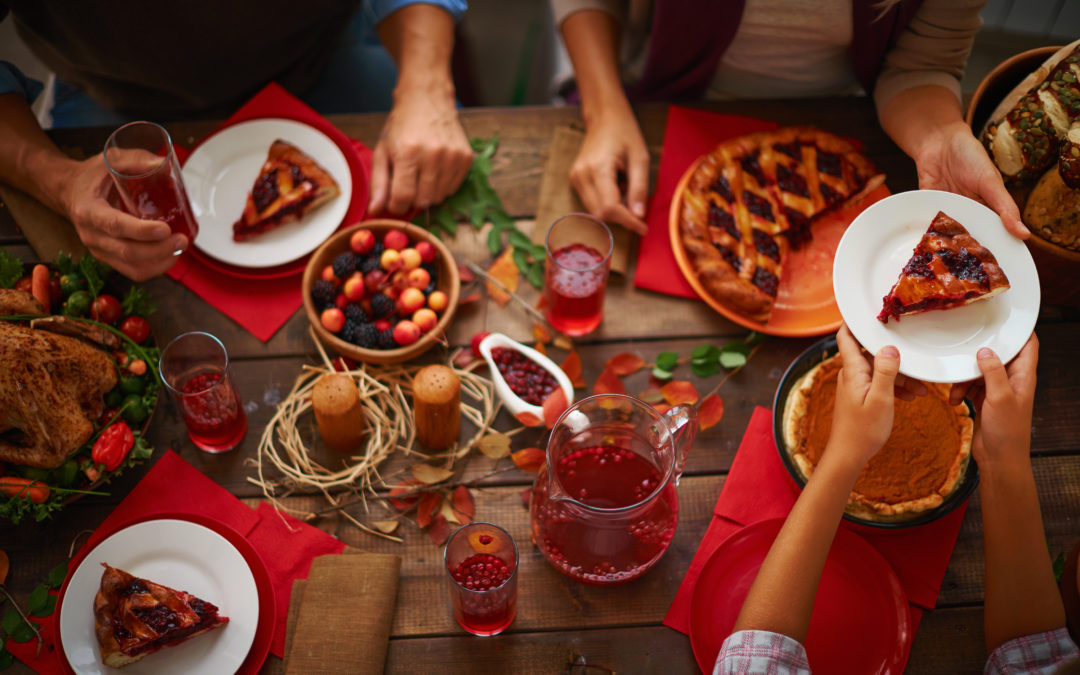The holidays are full of friendly conversation, festive decor and of course food, food and more food. With the endless spreads of seasonal treats, it’s all too tempting to abandon our healthy habits in favor of holiday cheer. The holidays are especially difficult for those suffering with food addiction and other eating disorders. If you suffer from an eating addiction, it helps to be thoroughly prepared for all the triggers around this time of year. Take notes from these methods to soar through the holiday season feeling clean and accomplished.
Prepare your mind for inevitable temptation. Take Winston’s Churchill’s advice: “If you fail to plan, you plan to fail.” Having a solid eating strategy begins with having a focused state of mind free of judgement and comparison. It isn’t healthy to try to follow self-imposed restrictions. Call ahead to find out what will be served. Bring your own meal. Putting your ego aside to make room for success with your goals.
Make reasonable boundaries. Establish food boundaries that you can feasibly stick to, and make sure to stick to them! Remember, the tighter the rules, the harder it is to stuck to them … and the more tempting it is to break them altogether. It also becomes tempting to rely on backtracking or getting ahead of the game with extreme restriction, but those plans typically result in a regressive binge session that lasts for days, weeks or even months.
Be compassionate. The most healing part of managing food addiction is simply feeling happy with being human. Slip ups do happen, but ultimately it’s important to recognize if you’re accepting your beautifully flawed self, or when you’re justifying behavior because of the environment, and that answer is deep down.
Be the host. Hosting your own holiday party puts you in control of what food and drinks will be served, whether there are activities for guests, and promises the option of a familiar environment. As a host, you’l be on your feet, staying busy and mingling the entire time, which lessens possibility for temptation to creep in.
Stick with your support group. While you may be taking time off of work or other obligations during the holidays, don’t put your support group on the back burner. Remember, members of your OA or similar group are experiencing the same struggles and temptations. Your presence not only keeps your mind focused, but also proves you are committed to their recovery too.
Limit or abstain from alcohol. The calories and lessening of willpower caused by alcohol make it too hard to commit to your goals. Keep a glass of water (sparkling or still) in your hand as often as possible. This will keep from personal temptation and pressure from party goers to “grab you a drink.”
Stay mindful, stay busy. Managing food consumption at holiday parties is hard for everyone, not just people with food addictions. Remember there is always more to do at a party than eat.There are people to speak to, photos to take, games to play, gifts to give. If there is absolutely nothing to do, well shame on the host, but make a point to hold a glass while mingling. If you aren’t at a party, take part in an activity that doesn’t directly benefit you, like donating clothes and books or volunteering your time at an animal or homeless shelter.
Do You Think You Suffer From Food Addiction? Symptoms include:
- Seeking/craving behaviors
- Cravings often amplified by physiological changes caused by abuse of foods high in sugar, fat, etc.
- Low self-esteem
- Depression
- Anxiety
- Feelings of hopelessness
- Emotional detachment
- Food addiction is often associated with bulimia, or the binging and purging of food on a regular basis.
Managing Food Addiction
Understanding triggers will help you manage them. In general, observing your mood, mentality and reactions to peer pressure during an event will help keep temptations at bay. There are several ways to organize these observations: journaling, meditation and attending support groups are a few methods to try. During your observations, think about the labels you’ve placed on certain foods, or categories of foods. Consider why you’ve labeled them that way, and whether that is working for you or against you. If needed, see a psychologist if things become too difficult.

